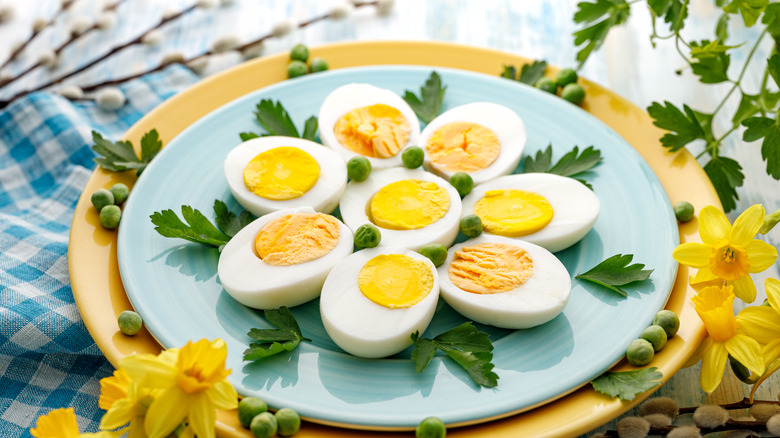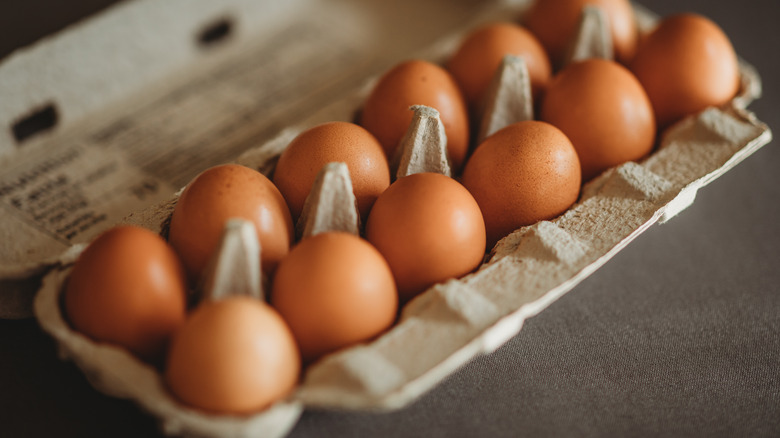Why You Should Use Older Eggs When Making Hard-Boiled Eggs
For something that seems so simple, hard-boiled eggs can be endlessly frustrating. You expect to just drop a few eggs in some water for an easy snack or to quickly whip up a batch of deviled eggs for your next potluck, but instead, you spend 10 minutes desperately picking at tiny eggshell shards and tearing off chunks of that once pristine white until you're left with an ugly, cratered mess. There also seem to be a dozen different ways to cook them, from baking in a muffin tin to steaming, with each method promising all the troubles you've had with hard-boiled eggs are over forever.
Despite all the strange tricks and contradictory advice, there are a few tried-and-true methods most experts can agree on for making hard-boiled eggs. After cooking you'll want to shock your eggs in an ice bath for sure, and adding a little vinegar and salt to the water before cooking can aid the peeling process while also sealing cracks by congealing the white before it leaks out (per Simply Recipes). But there is one basic step you can take before ever breaking out a pot: make sure you're using older eggs.
Older eggs are easier to peel after hard-boiling
There is a little bit of science at work as eggs age and travel from coop to your refrigerator which makes them a better candidate for hard-boiled eggs than their fresher counterparts. Carbon dioxide loss raises eggs' pH level, which causes the white to adhere less to the eggshell, according to Wired. As eggs age, they also lose moisture, which creates an air pocket as the egg contracts away from the membrane. Both these processes mean your eggshells are going to come off cleaner and easier after cooking.
So how do you make sure your eggs are old enough to aid in the peeling process? Southern Living says that eggs remain fresh for several weeks after the date you see stamped on the carton, so you can let store-bought eggs sit in your fridge for a while without worrying too much about cracking open a rotten one. You can test eggs for freshness by putting them in a glass of water and seeing if they float.
It's also worth noting that your eggs — especially those purchased at the grocery store — are probably not as fresh as you think; Between the time spent waiting to get packaged and sitting on the shelf, Serious Eats reports eggs sold at supermarkets in the U.S. may be up to two months old before you finally bring them home. With a little planning and by employing the float test to see how old your eggs really are, your patience should be rewarded with a much easier peel.

